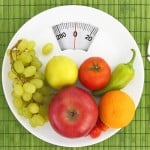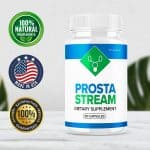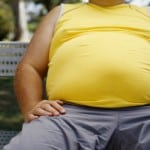Everybody who isn’t living under a rock has heard that processed foods are very unhealthy. The obvious reason for this is that humans tend to have reactions when they are exposed to weird chemicals and chemicals that can’t be pronounced definitely fall into the category of weird chemicals. A holistic, natural diet is comprised of ingredients that can be pronounced, including many fresh fruits and vegetables as well as grains. But there’s a little more to nutrition than that. A heavy amount of research has shown that various types of processed foods—including red meat, gelatin, or the ever-infamous high fructose corn syrup—result in the increase of a variety of health risks. But what specifically makes processed foods so bad for us? The following article explores this idea.
Processed vs. Unprocessed Foods
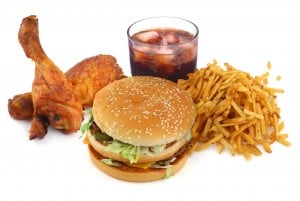
Speaking simply, processed foods use artificial ingredients and additives while unprocessed foods use only natural ingredients (think apples, spinach, and the like). It is uncommon to find a food product that doesn’t have chemicals of any sort, but some foods are so processed that they barely resemble their natural-occurring food progenitors. The latter type is the foods people should avoid—or, at least, shove away until the holiday season. While Oreos, MnMs, and Cheetos admittedly taste pretty wonderful, they are filled with artificial colors, sweeteners, and flavors. Cheetos are so far removed from cheese that the flavors of each are highly distinct; Cheetos are distantly evocative of cheese, but their taste holds little direct resemblance to the taste of cheese. And usually, your taste buds will know it instinctively. Anything that tastes “fake” probably is fake—or, at least, uses a significant amount of artificial ingredients.
If your taste buds don’t cause you to run the other way, just turn the product over and look at the ingredients list. Check to see if there are any long, scientific-sounding names. Be honest. Instead of standing in the aisle and squinting at those words in question, employ the five-second rule. If it takes you more than five seconds to sound out the word, that product should not go in your cart. High amounts of sodium and trans fat are other things to look out for although sodium does occur naturally in most foods, it only does so in small amounts. And trans fat is all but manmade, rarely present in nature but booming in various portions of the food industry, most notably the dairy industry. (Have you ever looked at the back of your margarine container?)
Now to return to unprocessed foods: anything you can pluck right out of the dirt obviously qualifies, but people also generally include foods with any combination of natural ingredients, even if they were tossed in a blender or food chopper and therefore technically processed. Unprocessed foods range from whole grain bread to peanut butter to freshly squeezed orange juice. They are generally very easy to digest since there are no unhealthy additives present.
For more information on what makes processed foods bad for you, continue on to the next section.
Problems with Processed
“A raw seed will sprout and grow, whereas a cooked or processed seed will not sprout, and of course, it will not grow either. For days, and even weeks, raw, unripe food will continue to ripen.” ~ Unkown Wiseman
If you keep peeling back the layers of processing in food, you’ll start with the junk foods, move through something ground but only comprising one ingredient (such as peanut butter) and finally get to the living plant matter. The sooner fruit or vegetables are picked, the more life it still contains—and life bolsters life, with plants and animals supporting each other. After all, humans inhale oxygen and exhale CO2, and for plants the complete reverse is true. We give one another the ability to support and nourish our lives. Processed foods have all traces of plant life sucked right out of them, and as the above quote made abundantly clear, life cannot grow from death. Eating processed foods means eating food that is not helping you get the nutrients you need to live.
Some studies also show a connection between junk food and food addiction. Doing pleasurable things releases dopamine, and so eating pleasurable things results in pleasure—making you crave the aforementioned food items over and over again. Processed foods may not be good for people, but their flavors are a guilty pleasure to most of us.
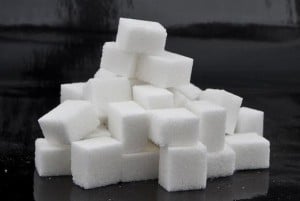
All this may seem a little bleak, but here’s some good news: you can turn bad eating habits around any time you want. If you don’t have a major disease like diabetes but your diet choices are getting you there (take it easy on the sugar!), you should schedule an appointment with your doctor as soon as possible and start working on a plan to reform your diet. If you change your eating tune and commit to unprocessed foods, you will in all likelihood be able to reverse health problems before you’re stuck with them. Poor food choices can be damaging to various organs if the damage goes on for a long time. That said, eating healthy, unprocessed food does wonders for any condition, mitigating dangerous unpleasant effects of conditions you’ve been battling for years. It is never too late to begin eating properly.
Conclusion
Perhaps the best tool people have for ditching processed foods is moderation. It’s a lot easier to eat one KitKat than it is to sit at the table with clenched fists, forcing yourself to not eat any. The latter is just a disaster waiting to happen—in the form of KitKat wrappers littering the floor of your room. At least start with the goal to reduce your intake to only healthy amounts before vowing to stop eating junk food altogether. You’re far more likely to be successful with smaller, more frequent goals—that way, you won’t overwhelm yourself. Wean yourself off of the junk food that’s prevalent all over the Western world and see how great you feel, even as early as the next day!
And watch……….:
Unprocessed – how I gave up processed foods (and why it matters) | Megan Kimble:
© 2016-2023 by Overweight.net, a LiVenture.
All rights reserved. No part of this document may be reproduced or transmitted in any form or by any means,
electronic, mechanical, photocopying, recording, or otherwise, without prior written permission of LiVentures.



